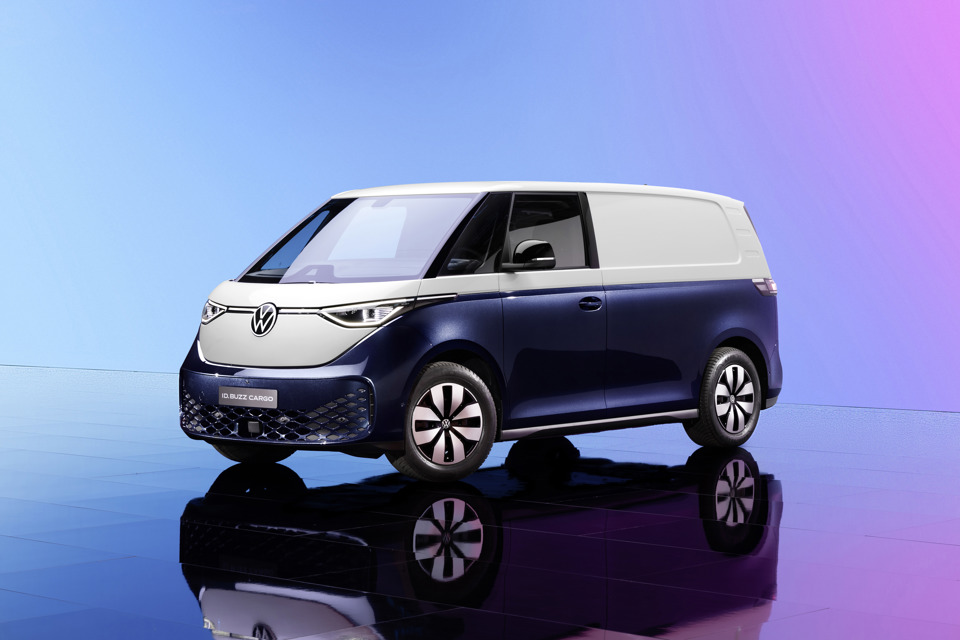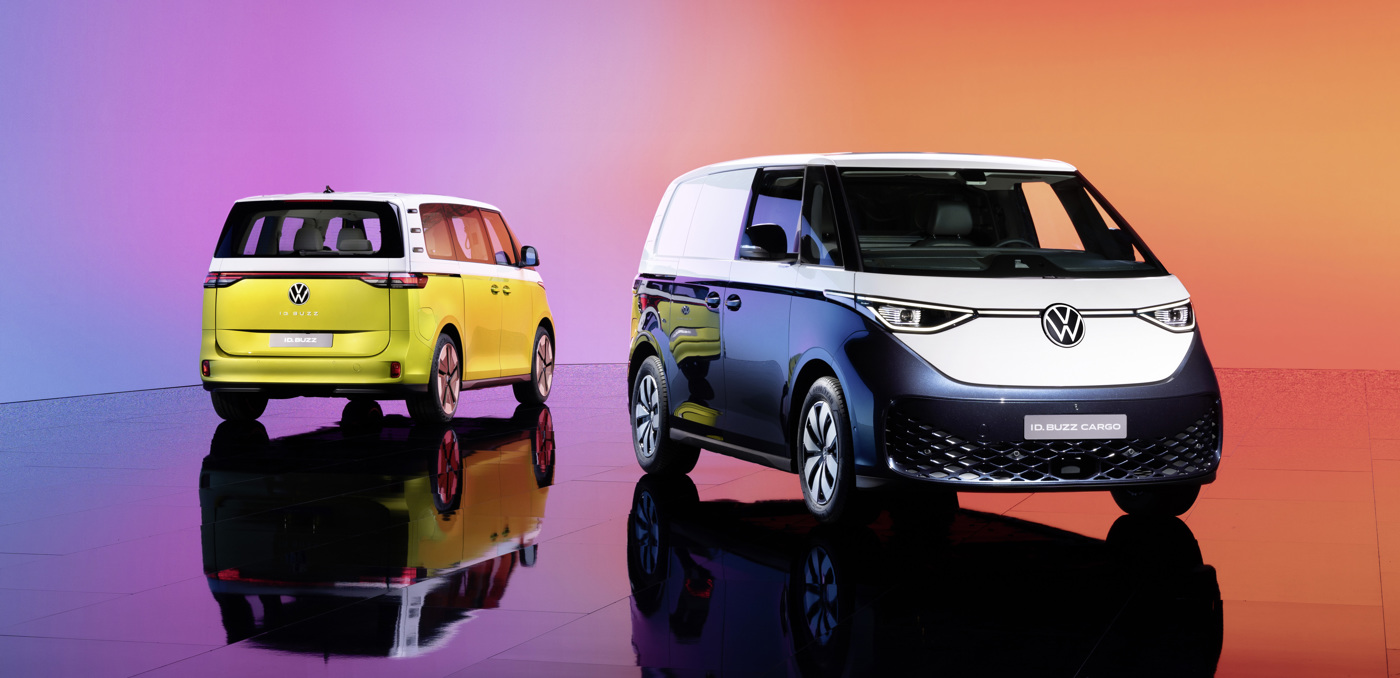Volkswagen has opened its order books for the ID. Buzz Cargo commercial vehicle version of its newly-launched zero-emissions MPV.
The German carmaker revealed that prices for the retro-styled light commercial vehicle (LCV) will start at £38,125 after revealing that demand for the ID. Buzz MPV had resulted in two-thirds of its annual production run already finding owners.
On non-maintained 36-month, 7.7% APR contract hire agreement allowing 10,000 miles per year, the ID. Cargo is now being offered for £479 per month with a £2,874 initial rental.
The price includes three services and an MOT as standard, with a free wall box charger and £100 We Charge voucher included with each agreement financed through Volkswagen Commercial Vehicles Financial.
VW offers both a Commerce and Commerce Plus trim level, both fitted with a 77kWh lithium-ion battery and electric motor producing 204PS and a potential all-electric range of up to 256 miles.
Among the standard equipment of the ID. Cargo Commerce are LED headlights, three front seats with heated driver’s seat, front and rear parking sensors and a Ready 2 Discover infotainment system featuring a 10-inch touchscreen.
There is also wireless App-Connect for Apple CarPlay and Android Auto, and multiple USB-C ports.
Commerce Plus (from £42,375) adds Adaptive Cruise Control (ACC), keyless entry, Park Assist Plus, a rear-view camera, heated windscreen, Discover Pro navigation system with 10-inch touchscreen and a range of driver assistance systems.
Last week German automotive sector publication Automobilwoche revealed that ID Buzz full-electric van is already sold out for months before the start of deliveries, with advance sales having now passed the 10,000 mark.
Around a third of the pre-orders have been placed in Norway, it said.
Volkswagen may struggle to ramp-up production to meet demand.
Back in March former Volkswagen Group chief executive Herbert Deiss warned that a shortage of components sourced from Ukraine could prove its biggest supply issue in 2022.
Last month, however, the German OEM said that it expects its vehicle supply issues to improve in the second half of 2022, with a more “normalised” model mix expected to reach its car retailers.
















Login to comment
Comments
No comments have been made yet.